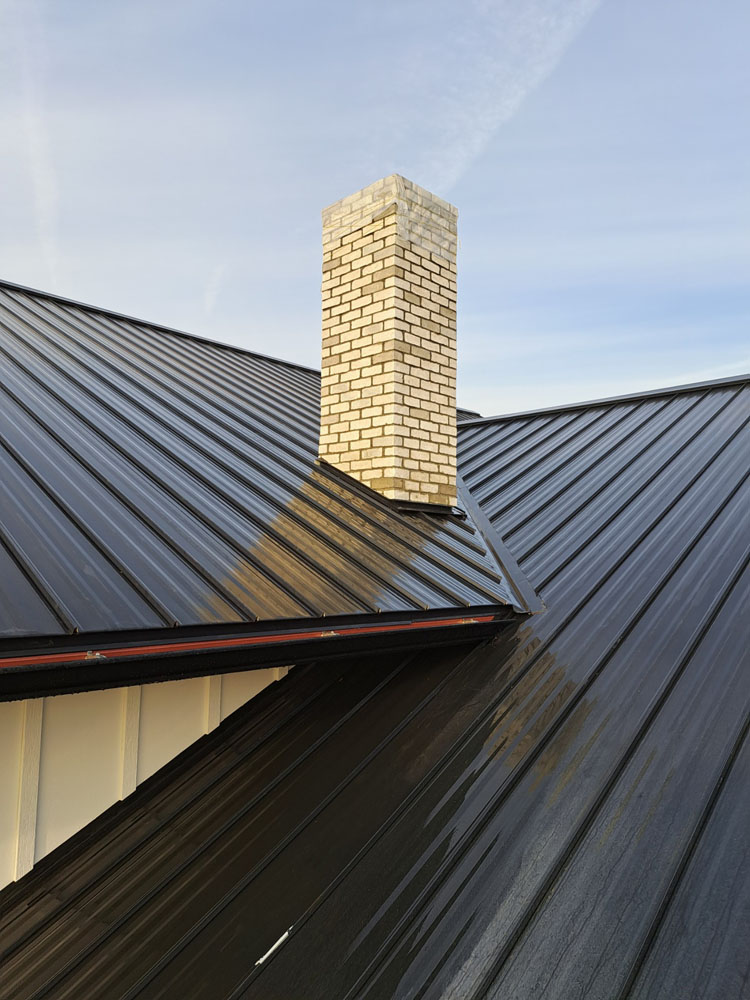Introduction
When winter's chill sets in, there's nothing quite like the warmth of a cozy fire. However, before you unwind with a good book by the flames, it’s essential to ensure that your chimney is in tip-top shape. Stay Warm and Safe: Why You Shouldn't Delay Your Chimney Repairs is not merely a cautionary phrase; it’s a call to action that could save lives and property.
In this comprehensive guide, we’ll explore the importance of timely chimney repairs—specifically focusing on masonry chimney repair—and why procrastination can lead to dire consequences. From understanding the structure of your chimney to recognizing warning signs of damage, this article aims to equip you with knowledge that ensures both warmth and safety.
Understanding Your Chimney Structure
What are the Main Components of a Chimney?
Your chimney isn't just a hollow structure; it's composed of several vital parts that work together:
- Chimney Cap: Prevents water and debris from entering. Flue Liner: Protects the chimney walls from heat and corrosion. Smoke Chamber: Helps funnel smoke into the flue. Crown: The top surface that sheds water away from the brickwork.
Understanding these components is crucial because any failure in one part can lead to significant structural issues.
The Role of Masonry in Chimneys
Masonry chimneys are often preferred for their durability. Made from bricks or stone, they offer superior resistance to high temperatures compared to other materials. However, as sturdy as they may be, they aren’t immune to wear and tear.
Identifying Common Chimney Problems
Cracks in Masonry: A Red Flag
Cracks in your masonry can allow moisture penetration which leads to further deterioration. Small cracks can often be repaired easily if addressed promptly.
Flue Blockage: A Hidden Danger
Debris, bird nests, or even soot buildup can block your flue. This blockage can prevent toxic gases from escaping your home, creating an unsafe environment.
Why Timely Repairs Matter
Preventing Fire Hazards
Neglecting your chimney can result in dangerous creosote buildup—a leading cause of house fires. An annual inspection can help prevent this hazard.
Health Risks from Carbon Monoxide Poisoning
A blocked flue also poses serious health risks due to carbon monoxide buildup. Timely repairs ensure proper ventilation and protect your family’s well-being.
Stay Warm and Safe: Why You Shouldn't Delay Your Chimney Repairs
Delaying necessary repairs isn’t just risky—it’s downright foolish! Every Masonry chimney repair season you ignore potential issues increases your chances of costly damage down the line. So why wait? Address those problems head-on!
Cost Implications of Delayed Repairs
Short-Term vs Long-Term Costs
Though it may seem economical to delay repairs, you’re likely setting yourself up for higher costs later on. The longer you wait, the more extensive (and expensive) repairs become.
Insurance Implications
Some insurance policies require regular maintenance checks. If an incident occurs due to neglect, you may find yourself footing the bill entirely.
Recognizing Warning Signs Early On
Chimney Leaks: The Sneaky Culprit
Water stains on walls or ceilings near your fireplace could indicate a leak in your chimney system. Don’t let moisture wreak havoc on your home!
Unpleasant Odors: Not Just Bad Air Fresheners!
Foul smells around your fireplace may signal trapped gases or mold growth within your chimney structure—both serious issues needing immediate attention.
The Importance of Professional Inspections
DIY vs Professional Services: What's Best?
While it might be tempting to try DIY fixes on minor issues, complex problems require professional expertise. Licensed professionals have specialized equipment that ensures thorough inspections and effective repairs.
What Does a Professional Inspection Include?
A comprehensive inspection usually involves:
- Visual examination Flue inspection using cameras Smoke tests
These steps are essential for identifying hidden problems before they escalate.
Choosing the Right Masonry Chimney Repair Service
Credentials Matter: What to Look For?
When selecting a service provider for masonry chimney repair, consider their credentials:
- Certification and licensing Experience level Customer reviews
Questions To Ask Before Hiring A Contractor
How long have you been in business? Are you licensed and insured? Can you provide references?Asking these questions ensures you're hiring someone trustworthy who Homepage will treat your home with respect.
FAQs
Q1: How often should I inspect my chimney?
A1: At least once a year! Regular inspections catch problems early before they escalate into costly repairs.
Q2: Are there any DIY fixes I can do myself?
A2: Minor maintenance tasks like cleaning out debris from the cap or checking for obvious cracks are manageable—but always consult professionals for anything serious!
Q3: How much does masonry chimney repair typically cost?
A3: Costs vary widely based on damage extent but expect anywhere between $200-$2,500 depending on repairs needed.
Q4: What are some signs my chimney needs immediate attention?
A4: Look out for smoke backing up into your home, persistent odors coming from the fireplace, or visible cracks in masonry work.
Q5: What happens if I don’t repair my chimney?
A5: Ignoring necessary repairs can lead not only to structural damage but also severe fire hazards and health risks due to gas exposure.
Q6: Can weather affect my chimney's condition?

Conclusion
In conclusion, ensuring that your chimney is well-maintained should never be an afterthought during winter preparations. By following through with timely inspections and addressing any needed masonry chimney repairs promptly, you're safeguarding both your family’s health and investment in your home.
So remember— Stay Warm and Safe: Why You Shouldn't Delay Your Chimney Repairs! Don't put off what could save you headaches down the road; reach out for professional help today!